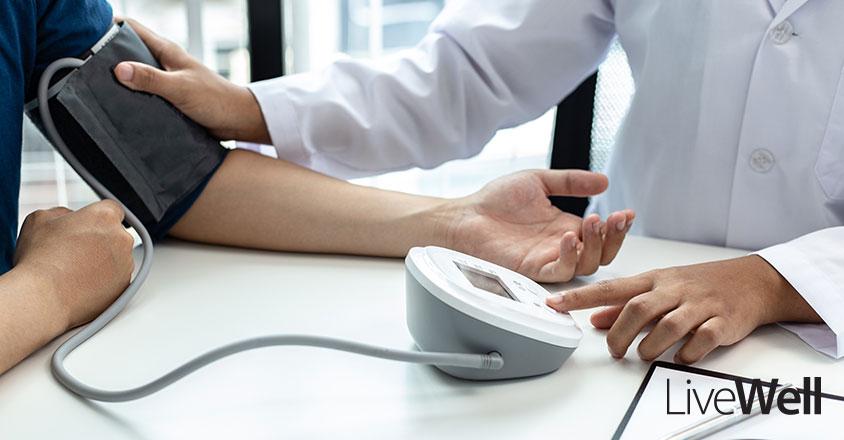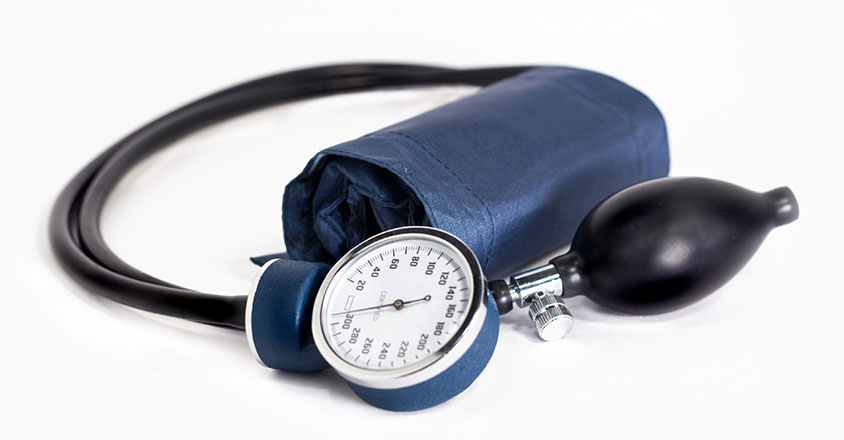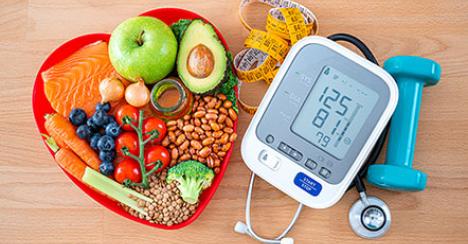

Pump up your heart health
According to the Centers for Disease Control and Prevention, almost 120 million people have high blood pressure or are taking high blood pressure medication.
The American Heart Association (AHA) describes blood pressure as the force of blood against our artery walls as it runs through our bodies. Our hearts push blood into vessels with every beat.
Blood pressure readings are measured in millimeters of mercury, or mm Hg, and include two numbers:
- Systolic pressure, the top number, is the pressure against the artery walls as the heart beats. This number is recorded first.
- Diastolic pressure, the bottom number, is the pressure against the artery walls between heartbeats. This is when the heart rests.
A doctor diagnoses high blood pressure, or hypertension, when readings are regularly too high. A healthy reading for adults is less than 120/80 mm Hg. Ranges vary for children. High blood pressure can also affect pregnancies, resulting in conditions such as preeclampsia and early delivery.
Treatment
If you’ve been diagnosed with hypertension, integrating healthy lifestyle changes is important. Poor management can lead to additional health concerns, such as a heart attack, vision loss and stroke.
The AHA recommends these tips:
- A diet with fruits and vegetables, whole grains, skinless poultry and fish, fat-free or low-fat dairy products and nuts.
- Lower salt intake.
- Be physically active.
- If you smoke, stop smoking.
- Take prescribed medications.

Categories
High blood pressure doesn’t always have warning symptoms. The AHA groups blood pressure readings into five categories.
| Blood pressure category | Systolic pressure mm Hg | Diastolic pressure mm Hg |
| Normal | Less than 120 and | Less than 80 |
| Elevated | 120 to 129 and | Less than 80 |
| High blood pressure stage 1 | 130 to 139 or | 80 to 89 |
| High blood pressure stage 2 | 140 or higher or | 90 or higher |
| Hypertensive crisis | Higher than 180 and/or | Higher than 120 |
Work with your doctor to know your numbers and learn about prevention or treatment. While one high reading isn’t always a sign of concern, call 911 if readings are over 180/120 mm Hg and you have chest pain, shortness of breath, back pain, vision changes, dizziness or vomiting.
Learn more about managing blood pressure
-

Article
Putting the pressure on blood pressureLowering blood pressure doesn’t need to be difficult. Incorporate these habits for a healthy heart.
Read now -

Article
Natural ways to reduce high blood pressureRead about four natural ways to reduce and prevent high blood pressure.
Read now -

Article
DASH to lower blood pressureThe Dietary Approaches to Stop Hypertension diet helps create a heart-healthy lifestyle.
Read now
Ready to get healthy?
Sign up for our digital newsletters to receive health tips, recipes, success stories for inspiration and information about new doctors to help you on your journey to better health.
Genesis HealthCare System’s Health and Wellness content conveniently provides accurate and helpful information. Your health history and current health may impact suggestions provided through our Health and Wellness content. Although we hope this information is helpful, it is not a substitute for your doctor's medical advice. Before making any significant changes, please consult your doctor.



